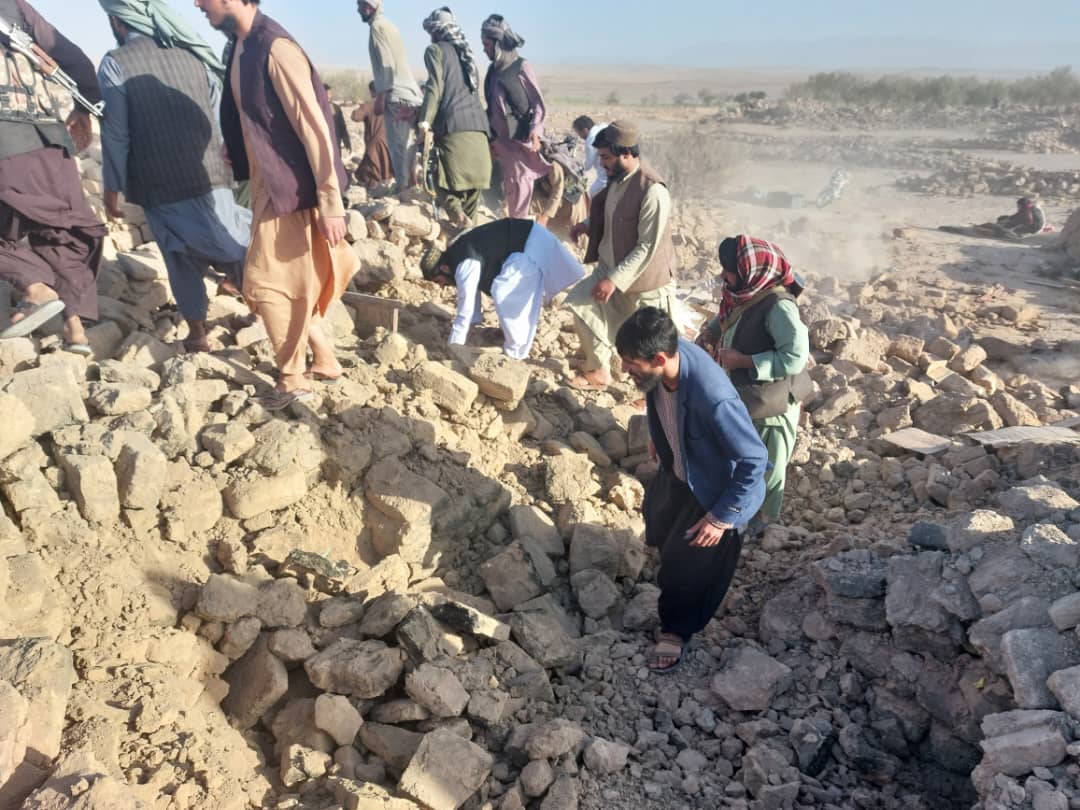The death toll has reached at least 2,053 on Sunday, with at least 9,240 others injured.
Qatar has expressed its solidarity with Afghanistan on Sunday after a deadly 6.3 magnitude earthquake in the Herat province claimed the lives of more than 2,000 people.
“The State of Qatar expresses its solidarity with the Afghan people in the face of the earthquake disaster that struck the west of the country, leaving hundreds dead and wounded,” the Gulf state’s foreign ministry said in a statement.
Qatar added that it “is fully prepared” to provide Afghanistan with “necessary assistance to recover” from the deadly quake.
Multiple earthquakes struck the northwest city of Herat on Saturday, including a powerful one that measured 6.3 magnitude.
The spokesman for the Afghan Ministry of Disasters Mullah Janan Sayeeq confirmed to Reuters on Sunday that the death toll reached at least 2,053, with at least 9,240 others injured.
Hundreds of houses across six villages in the crisis-hit country have been destroyed by the latest catastrophe, which has been declared as one of the deadliest in two decades.
In a separate statement to Al Jazeera, the Taliban’s Doha-based spokesperson Suhail Shaheen said the total death toll is likely to rise as rescue operations continue to search for victims trapped under the rubble.
Non-profit organisations, such as the Red Crescent and Doctors Without Borders, among several others have been scrambling to search for survivors since Saturday.
The World Health Organization (WHO) in Afghanistan dispatched 12 ambulance vehicles to transport victims to local hospitals.
“As deaths & casualties from the earthquake continue to be reported, teams are in hospitals assisting treatment of wounded & assessing additional needs,” WHO said on X, formerly known as Twitter.
The mountainous country is no stranger to earthquakes.
In 2022, a fatal earthquake struck Afghanistan’s eastern region, killing at least 1,000 people and injuring around 1,500 others.
Afghanistan has already been grappling with a worsening humanitarian crisis caused by decades of conflict and drought, making it difficult for the country to recover from earthquakes.
The UN previously said the crisis-hit nation is facing “a serious risk of systemic collapse and human catastrophe”, with a total of 29.2 million people in the country in need of humanitarian assistance.
However, governments and entities around the world have appeared to hesitate to provide aid due to sanctions imposed on the ruling Taliban administration, dealing a blow to the country’s economic development.
Doha has maintained its contact with the acting Taliban-led government since their takeover of Kabul in 2021 and has called on the international community to avoid isolating the country over its new de facto administration.







